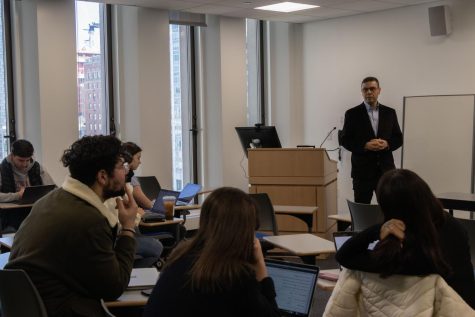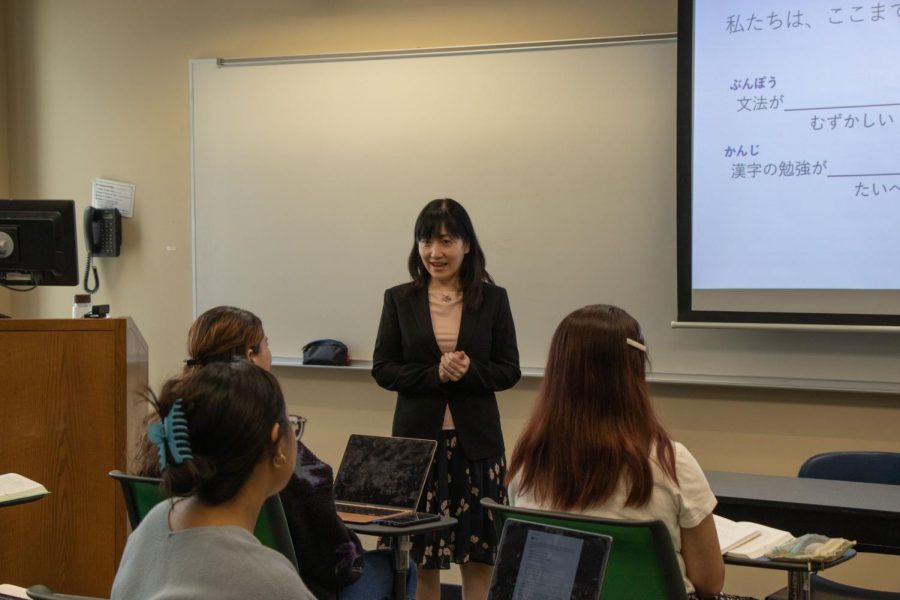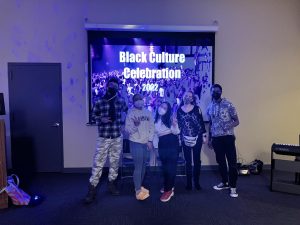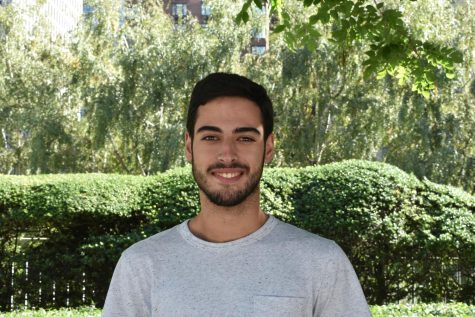Fordham’s Language Professors Promote Cultural and Multilingual Engagement
Arabic Professor Mohamed Abdel Rahman and Japanese Professor Yoko Sakurai provide insight on expanding cultural awareness through language learning
Sakurai found her passion for language education while in college. In her classes, she encourages engagement with social issues and promotes collaboration among students.
April 12, 2023
Fordham’s core curriculum requires most students to take language courses until they reach the exit level, which can take up to four semesters. The university’s modern languages and literatures department offers eight options, including Spanish, French, Arabic and Japanese, for students to fulfill this requirement. Fordham professors Mohamed Abdel Rahman, senior lecturer of Arabic, and Yoko Sakurai, adjunct lecturer of Japanese, discussed the impact languages have and the significance of studying languages inside and outside of the classroom.
Both Abdel Rahman and Sakurai delved into the importance of language education in building communication skills and social awareness when sharing their experiences in becoming educators.
Abdel Rahman was born and raised in Cairo, Egypt. Prior to becoming an educator, he studied law at Ain Shams University, also in Cairo, in 2003, and worked as a corporate and civil attorney for five years.
He immigrated to the United States in 2008 and, with a growing interest in sharing his culture and language with others, focused on developing his educational skills and teaching. He began lecturing at Fordham Lincoln Center 13 years ago and studied law at Fordham’s School of Law in 2016.
Abdel Rahman — also referred to as Ustez by his students — now teaches all levels of Arabic, from beginner to advanced. He also instructs courses that focus on literature and specialized cultural studies within the Arabic language.
“I love my students, and I love the environment we have at Fordham. They are very open and eager to learn, so I enjoy teaching them,” he said. “We have a stress-free classroom; the students are relaxed. I am very lucky to have these students.”
He emphasized the importance of teaching a variety of core skills to students during each lecture, including reading, writing, speaking and listening.
“Learning a foreign language is important for every single person; it opens up your mind to new things that you were not aware of. It opens up a lot of things for you.” Mohamed Abdel Rahman, senior lecturer of Arabic
As a language professor, Abdel Rahman added that it is crucial to interact with and adapt to the needs of his students. He explained that he refrains from lecturing or leaving students to attend to themselves. Instead, he checks in on students regularly, encouraging group work; reviewing their reading, writing and listening progress; and ensuring that every student is on the same page.
Abdel Rahman noted that learning a language can help with communication and interaction with other cultures. It is also a beneficial skill that many employers seek.
“Learning a foreign language is important for every single person; it opens up your mind to new things that you were not aware of,” Abdel Rahman said. “It opens up a lot of things for you.”
He gave the example of how some of his former Arabic students used their language skills to help teach English to Syrian and Yemeni child refugees who came to New York during the Syrian crisis.

Ilayda Vural, Fordham College at Lincoln Center (FCLC) ’25 and a student of several of Abdel Rahman’s courses, said that the professor is “incredibly caring and engaged with his students” and added that he has helped her realize the benefits of learning Arabic in her future.
Vural added that after beginning her studies in Arabic with Abdel Rahman, she realized she can use her computer science degree in combination with her minor in Arabic to engage with Arabic-speaking communities and increase their access to computer science information and technology.
“Ustez has shown me that even if I am not the best speaker or reader, my love of the language can help my communication,” Vural said.
In Fordham Lincoln Center’s Japanese program, Sakurai teaches beginner to high-intermediate-level classes as well as various literature and culture-oriented classes.
“Through teaching Japanese language and culture, I want my students to better understand their own culture or other student’s cultures and to respect different cultures and values.” Yoko Sakurai, adjunct lecturer of Japanese
Sakurai found her passion for language education and intercultural exchange during a study abroad trip to England while in college. During this time, she volunteered as a teaching assistant to a Japanese professor, which helped spark an interest in the field of education.
She has taught Japanese at various colleges for over 20 years and is currently teaching programs in modern literature and film at Hunter and Baruch colleges in addition to her courses at Fordham.
“The beauty of teaching in New York City is that we are culturally diverse,” Sakurai said. “Through teaching Japanese language and culture, I want my students to better understand their own culture or other student’s cultures and to respect different cultures and values.”
Sakurai has also adopted an antiracist and social justice approach in her lessons. She presented an example on engaging with social issues in class, such as racism and gender inequality in Japan, to raise awareness as well as to promote collaboration among students.
“Teaching language has this potential to change the world. Maybe that’s an exaggeration, but we can start from here.” Yoko Sakurai, adjunct lecturer of Japanese
“I want my students to look at problems in Japan and around them, and I want them to work on these problems. I know it’s difficult to find a solution if you’re just by yourself, but together with other people and other students, they can find a way to make things better,” she said.
Sakurai noted that she wants her students to be able to discern in which situations they can utilize Japanese. She emphasized that these topics and situations are more important than learning grammar without any context of how it is applicable outside of the classroom.
“Teaching language has this potential to change the world. Maybe that’s an exaggeration, but we can start from here,” Sakurai said.
West Gorman, FCLC ’26 and a student in Sakurai’s intermediate course, expressed that he enjoys the class because of her method of incorporating interesting aspects of Japanese culture into lessons. He called her a “really great teacher.”
Sakurai also expressed how immersion in other cultures should be, at the end of day, an informative and exciting experience for students.
Sakurai also spoke on the importance of taking advantage of the cultural experiences and opportunities that are unique to New York City’s diverse landscape. She gave the example of being able to watch live Rakugo, a traditional Japanese art of storytelling usually presented as a comedy performance that has existed for over 300 years.
She added that those in New York have access to authentic Japanese cuisine and cultural events, such as the Japan Day parade in Central Park and exhibitions hosted by the Japan Society.
Sakurai also expressed how immersion in other cultures should be, at the end of day, an informative and exciting experience for students.
“Studying a language should be fun. I want to reduce the pressure (on) the students,” Sakurai said.
Both Abdel Rahman and Sakurai are offering courses for the fall 2023 semester at the Lincoln Center campus, with Abdel Rahman teaching three courses and Sakurai teaching two. Abdel Rahman’s courses will include an “Introduction to Arabic” course, an “Intermediate Arabic II” course and an “Approaches to Arabic” course. Sakurai will be teaching “Introduction to Japanese I” and “Intermediate Japanese II.”















